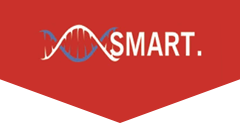Abstract
The latest trends and research in Brain-Computer Interface (BCI) technology have been used for emotional sensing and researchers interested in neurons to analyse brain diseases and disorders. In particular, Brain-Computer Interfaces (BCIs) are used by machine learning approaches to either restore neural pathways or help the patient interact effectively through an electronic prosthetic, showing promising results in impairment and rehabilitation care. Emotion Recognition and prediction of sensations supported by electroencephalography (EEG) have generated interest in a number of ways to implement human-centered services. Emotion is an aspect of how people behave and it is a critical overall performance in BCI. Today, researchers in computational linguistic regions have an interest in emotional attention for the evaluation of feeling. The EEG is moreover extra efficient for the evaluation of brain signal that assists in the analysis of neurological disorder medicinal drug and additionally performs a critical function altogether the neurosurgery related to the mind. This work aims to review reported papers on emotion identification, recognition, and exceptional detection of brain sickness upon that paper, a research analysis is worked out again to outline and illustrate the Brainwave emotion referendum outcome, and the evaluation also covers a few recent works on these degrees such as acquisition of EEG signals, extraction of capacities, emotion category, and prediction of ailment from these degrees. The various techniques of computer vision applied and combined with BCI technologies show that perhaps the treatment of brain disease with the use of BCIs is a promising and constantly evolving field.
Recommended Citation
Roy, Sukanya; Bhattacharjee, Soumya; Mandal, Bijoy Kumar; and Saha, Mriganka
(2024)
"A Comparative Study on Different Techniques for Classification of Brain Waves From EEG Signals,"
American Journal of Science & Engineering (AJSE): Vol. 2:
Iss.
4, Article 2.
Available at:
https://research.smartsociety.org/ajse/vol2/iss4/2

